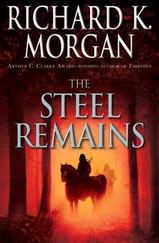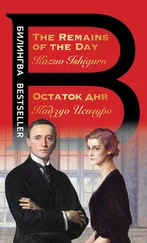I toss on a hoodie and some sweats and slide out the front door. As I make my way through the quiet streets of the Upper West Side, I can practically feel my intestines churning, like sludge through my digestive tract. My eyes are too puffy, and my hair is a haphazard ratty bun, and to add indignity to my already fairly low indignation, I am forced to slink past the newsstands, all of which plop the Post front and center, the paper screaming with the headline “Forget This!” There is a picture of Ginger and Peter—the fuzziness makes me think it was snapped from a camera phone—their cheeks pressed together, both of them grinning unbearably cheerful grins, the glow from a TV just above their heads in what looks like a sports bar. And then there I am, too—that sad sack of a picture that People magazine ran way back when: nearly clutching my literal pearls, looking so tightly wound that I imagine half of the Post readers wouldn’t blame Peter for sleeping with Ginger in the first place—the photo that has nothing to do with the new me, even though, if I were to really look closely at both it and who I am now, I might find some ghosts, recognize some of the old shadows left behind.
Liv is exactly where I knew she would be. I hesitate by the park entrance, watching her sip her coffee, fold over the page of the paper. It feels big, brave, almost too much, to step forward and acknowledge how badly I need her, how badly I need someone. Eventually, I amble toward the gate of the dog run, and as I unlatch it, she looks up, casually at first, then startled to recognize the face coming toward her.
“Nell!” She stands. “Did you get a dog?”
“No,” I offer. “But I brought fresh coffee.”
“I’m sorry, I don’t understand. What are you doing here?”
“I needed to talk to you,” I say. “I left a message at your office.”
“You really shouldn’t be here. This isn’t appropriate.” She casts about to find Watson, who is over in the corner sniffing some leaves. “We can find some time tomorrow.”
“Look, please. I’ll never do it again, I promise. I know this is unconventional and that you have all these boundaries…”
“There for good reason,” she interrupts.
“I’m sure they’re there for very good reasons,” I say. “But I’m here, and I just need fifteen minutes.” I can see her wavering. “And I did bring fresh coffee.”
“Fifteen minutes,” she concedes, sitting back down. “And for this, I expect some seriously diligent work this week.”
“I may be taking a break this week. Out of town.”
She looks at me skeptically. “What happened? Tell me what happened that you had to ambush me on a Sunday morning in the dog run.”
So I tell her. About Peter. About Ginger. About Paige. About Jamie, who left me a halfhearted voice mail saying he didn’t intend for me to find out this way, and he hoped that I’d call him for an explanation. And about Rory and Samantha, and the destruction that comes with bottling secrets up too closely.
“So who are you most angry at here?” Liv asks when I’ve cut through the bulk of the story.
“Who am I not most angry at here?” I echo.
“Shouldn’t it be Peter? Because it doesn’t sound like he’s the one you’re the most upset with.”
“I’m furious with him,” I say to Liv, considering the truth of it. “But maybe I’m also relieved.”
“About what?” She reaches down and grabs a tennis ball, hurling it toward the back of the dog run. Watson, who has meandered over toward us, takes off like a shot.
“That my instinct was right.”
“What instinct?”
“That instinct I felt back in the hospital—when I saw him. He didn’t feel right for me, but I tried anyway. Tried to let my mother and everyone else convince me otherwise.” I shrug. “For once, god knows, my instinct was right.” I don’t have to mention how wrong I was about Jamie, my decision to trust him, my false sense of familiarity, like he was an old friend, a cousin, a brother. No, no, certainly none of those.
“And what of your mother? Rory?”
“I’m so unspeakably angry with them that I don’t know what to do with myself.” I hate how brittle I sound, how hateful I am, but it’s there all the same. I am angry, I am brittle.
“That they didn’t tell you?”
“For starters. Yes! And that they didn’t treat me enough like a grown-up to sort this out on my own!”
“You realize you’re contradicting yourself,” she says. Watson runs over panting, delivering the tennis ball to her feet. She shucks it back across the run. “You’re angry that they didn’t tell you, and yet you’re angry that you didn’t trust yourself in the first place to do it on your own.”
“Listen, I’m pissed off at a lot of things! You can’t tell me that I don’t have the right to be!”
“I’m not telling you anything,” she says, then takes a long sip of her coffee. “Let’s get back to the free association we did in our early sessions.”
“I kind of want to talk about what just happened,” I say.
“Yes, I get that. But first, you came to me today, so I make the rules. And second, the point of that free-association exercise was for you to explore those instincts that you’ve disregarded, spit out whatever is in your gut, and then consider it, rather than stuffing it down where you’ll never hear from it again.”
“We’re back to my walls.”
“We were never past your walls.”
I sigh. “Did I tell you that my nickname in high school was the Ice Queen?” I ask, and she shakes her head no. “Well, it was. Evidently. Or so I’ve been told.” I think of the Beatles’ song for which I was at least partially named. It’s a song about the loneliest woman in the world! Jesus, I think, what chance did I have?
“And what does that say to you?” Liv asks.
“It says that I’ve long been an expert in, as you say, stuffing that stuff down into my gut.”
“And now?” Watson is back with his saliva-covered ball. This time, I scoop it up from the ground and toss it as far as my once-broken body will allow.
“And now,” I say, “maybe it’s time for a change. Maybe it’s time to pull up whatever was stuffed down and unclog my intuition.”
“I thought you said that people can’t change.” She looks at me now and smiles.
“Don’t listen to me.” I smile back. “Don’t you know that I’ve lost my mind?”
“God, I haven’t road-tripped it since sophomore year in college, right after I dropped out,” Anderson says, situating himself inside the driver’s side of the SUV we rented at Hertz on Monday morning. The car smells like old cigarette smoke masked by lemon air freshener, and under other circumstances, I might have complained and demanded a new one, but this is not before, and as Samantha said, I am trying not to make this about everything. That when you tumble from the clouds and slay the odds of surviving, maybe the little things can’t matter as much. So I strap on my seat belt, holding my breath, and eventually my senses adjust and I stop noticing what was so offensive—the stomach-churning mix of nicotine and manufactured citrus—in the first place.
“Where’d you go,” I ask, “on your trip?”
“Packed up my old Volvo and shot from Poughkeepsie to L.A. with my fraternity brother.” He laughs, remembering whatever it is that he’s remembering—the crappy hotel rooms, the waitress he bedded from the truck stop, the flat tire outside of Salt Lake City. “Jesus, I should call my buddy and say hi.” He shakes his head and says, more to himself than to me, “I haven’t spoken to him in forever.”
“I can’t remember if I’ve ever road-tripped it,” I say to him. “So we’ll call this virgin territory.”
Читать дальше












